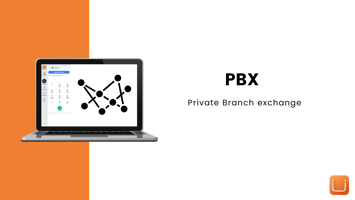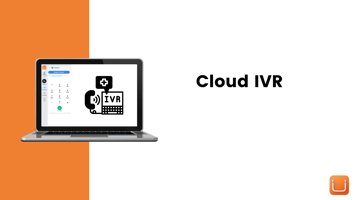A PBX (private branch exchange) system is a virtual telephone system or network for your company...
What is IP phone, and how does it work?
Currently, one of the areas with the most significant technological impact revolves around what IP telephony is and how it works. Thanks to its efficiency in transferring helpful information, this allows generating more and better results while reducing the final costs of invoicing.
As expected, this type of telephone service is increasingly in demand on a large scale by companies and organizations, successfully replacing conventional communication lines.
Therefore, in this section, you will find everything you need to know about IP telephony and how much it can offer your project if you decide to bet on it.
What is IP telephony, and how does it work?
IP phone allows you to send or receive data over a network connection based on Internet protocols.
VoIP or voice-over IP allows data information such as audio or voice to be transformed into packets of digital input capable of being transferred by digital signals or waves. This facilitates the task of making calls without using the conventional mobile signal.
When processed and shared over the Internet, senders and receivers also can transfer other content via IP, such as faxes, emails, or various forms of information. It enriches the customer experience and the usefulness of your project with every call.
Fundamental aspects for its operation
Suppose you are looking to delve into IP telephony, its main features, how it works. In that case, there is a question that tends to be repeated repeatedly among interested customers: what is needed for its use?
As expected, the use of the Internet protocol for telecommunications will require, on a mandatory basis, specific devices to accomplish the task, finding among them the well-known IP phones.
The latter is commonly known as Softphones, being business or office devices specially designed to work through VoIP. IP phones are configured with software that makes it easy to transfer data packets quickly.
IP devices must have a service provider suitable for the task for IP devices to work. This means you will need a permanent Internet connection and a stable IP telephony service, just like ours!
Some companies often integrate applications or software into their offices that allow conventional office phones to receive and issue IP calls.
Benefits of IP telephony
Now that you know what IP telephony is and how it allows its users to ensure better use of its essential functions, it's time to see other possibilities it offers you. And it also allows you to benefit from all the advanced options that this telecommunications medium can provide your company.
Therefore, take a look at the following list of the most outstanding advantages or benefits that IP telephony has in store for you:
Saving money
Perhaps one of the most important advantages when implementing this telecommunications system in companies is its ability to reduce costs. Why? The answer is simple.
By operating over the Internet protocol, IP telephony prevents the passage of data packets through the PSTN. This makes it possible to make international calls without additional costs by distance, duplicate tasks and even implement a completely free internal communication system.
In addition, when canceling this service, monthly fees are usually almost non-existent concerning conventional telephone lines, favoring economies of scale within companies.
Versatility
The concept of what IP telephony is and how it works shows the great versatility that this technology brings.
Companies with IP phones ensure streamlined processes by not generating the usual duplicities in conventional tasks. This way, workers can receive multiple calls simultaneously, hold conferences or connect with different users to avoid wasting time.
Greater configuration
The IP telephony system goes far beyond conventional low-cost calls. Thanks to its operation via the Internet, users can now monitor calls, identify individuals they are talking to, and even block users on the network.
In addition, it makes it easy to record or transfer calls between devices. The use of mobile applications to operate IP phones allows its users to take calls remotely, while teleworking and even from different devices in unison. Ideal for these times!



